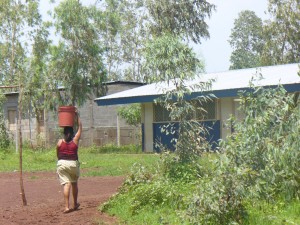An Ironic History of Water Scarcity in the Land of the Lakes
/ Called “The Land of Lakes and Volcanoes,” Nicaragua supposedly received its name from the Spanish Conquistadors: a hybrid of Nicarao, the chief of a local indigenous tribe, and agua, the Spanish word for water. How ironic then, that the country boasting the largest supply of freshwater in Central America suffers from a chronic scarcity of safe drinking water.
Called “The Land of Lakes and Volcanoes,” Nicaragua supposedly received its name from the Spanish Conquistadors: a hybrid of Nicarao, the chief of a local indigenous tribe, and agua, the Spanish word for water. How ironic then, that the country boasting the largest supply of freshwater in Central America suffers from a chronic scarcity of safe drinking water.
According to El Porvenir, more than two-thirds of Nicaragua’s rural communities lack access to clean potable water, with serious consequences for infant mortality, health, and even education – women and children are often forced to travel for hours each day to find water, leaving little time for school or work.
So if Nicaragua has such an abundance of water as a natural resource – with availability that is more than five times the average for the Central American region – then why do its citizens struggle to access it every day?
The answer lies, in part, in the country’s long water policy history. Under the Somoza dictatorship until 1979, much of the water system was owned and operated by the private sector, meaning that consumers had to pay full price for operation and maintenance of the system. This made the price of water inaccessible for Nicaragua’s poorest populations. Although today the country’s water supply and sanitation is a public good, pollution and service problems continue to restrict access. The city of Managua had been dumping untreated wastewater into Lake Managua for over 80 years, and the Nicaraguan Water and Sewerage Enterprise estimates that effective coverage is still less than 60% due to insufficient and unreliable service.
In attempts to fill this gap, local water committees and organizations such as Dos Pueblos and El Porvenir have undertaken water projects with local partners. With the generous help of the Cottonwood Foundation, Dos Pueblos’ potable water project works with local Nicaraguan communities, empowering people to come together to lay pipes, build wells, and ultimately develop community-owned small-scale infrastructure to guarantee sustainable water access. Over the past year, Dos Pueblos has transformed five rural communities, improving health, education and governance, and demonstrating just how important water is. But millions still lack access to this vital resource, and there is much to be done. See how you can make a difference - donate or volunteer today!

